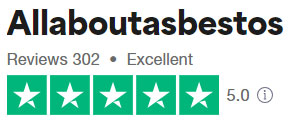This website uses cookies so that we can provide you with the best user experience possible. Cookie information is stored in your browser and performs functions such as recognising you when you return to our website and helping our team to understand which sections of the website you find most interesting and useful.
Asbestos Management
Asbestos Management in the South East.
Managers of industrial, commercial or public buildings such as factories, warehouses and offices as well as shops, hospitals and schools have a duty to manage asbestos risk. This also applies to those managing ‘common’ areas to apartment buildings and blocks of flats.
The duty holder, amongst other responsibilities, must take reasonable steps to find out if there are materials containing asbestos in the premises, and if so, their amount, location and condition, and keep an up-to-date record of these details.
Assessment of the risk of anyone being exposed to fibres must be identified and a plan prepared that sets out in detail how the risks from these materials will be managed. If you have any doubts about your duty, call us for advice today. We offer both asbestos surveys and asbestos removal services in Kent.
What Is The Asbestos Duty?
The duty to manage asbestos is contained in regulation 4 of the Control of Asbestos Regulations 2012. It requires the person (ie the “dutyholder”) to:
- Take reasonable steps to find out if there are materials containing asbestos in non-domestic premises, and if so, its amount, where it is and what condition it is in;
- Presume materials contain asbestos unless there is strong evidence that they do not;
- Make and keep up-to-date, a record of the location and condition of the asbestos containing materials – or materials which are presumed to contain asbestos;
- Assess the risk of anyone being exposed to fibres from the materials identified;
- Prepare a plan that sets out in detail how the risks from these materials will be managed;
- Take the necessary steps to put the plan into action;
- Periodically review and monitor the plan and the arrangements to act on it so that the plan remains relevant and up-to-date; and
- Provide information on the location and condition of the materials to anyone who is liable to work on or disturb them.
- There is also a requirement on anyone to co-operate as far as is necessary to allow the dutyholder to comply with the above requirements.
Asbestos Management Experts in Kent.
Call Us Today For A Free Quotation: 01843 600765
Who Has The Duty for Asbestos?
In many cases, the duty holder is the person or organisation that has clear responsibility for the maintenance or repair of non-domestic premises through an explicit agreement such as a tenancy agreement or contract, with the extent of the duty depending on the nature of that agreement.
In a building occupied by one leaseholder, the agreement might be for either the owner or leaseholder to take on the full duty for the whole building, or it might be to share the duty. In a multi-occupied building, the agreement might be that the owner takes on the full duty for the whole building, or it might be that the duty is shared, with the owner taking responsibility for the common parts while the leaseholders take responsibility for the parts they occupy.
Sometimes, there might be an agreement to pass the responsibilities to a managing agent.
In cases where there is no tenancy agreement, or it does not specify who has responsibility, or where the premises are unoccupied, the duty is placed on whoever has control of the premises. Often this will be the owner.
What Premises Are Affected by Asbestos?
The duty to manage covers all non-domestic premises, such as all industrial, commercial or public buildings like factories, warehouses, offices, shops, hospitals and schools.
Non-domestic premises also include those ‘common’ areas of certain domestic premises, as in purpose-built flats or houses converted into flats. The ‘common areas’ might include foyers, corridors, lifts and lift shafts, staircases, roof spaces, gardens, yards, outhouses, and garages – but would not include the flat itself.
Such common areas would also not include rooms within a private residence that are shared by more than one household such as bathrooms, kitchens etc in shared houses and communal dining rooms and lounges in sheltered accommodation.

